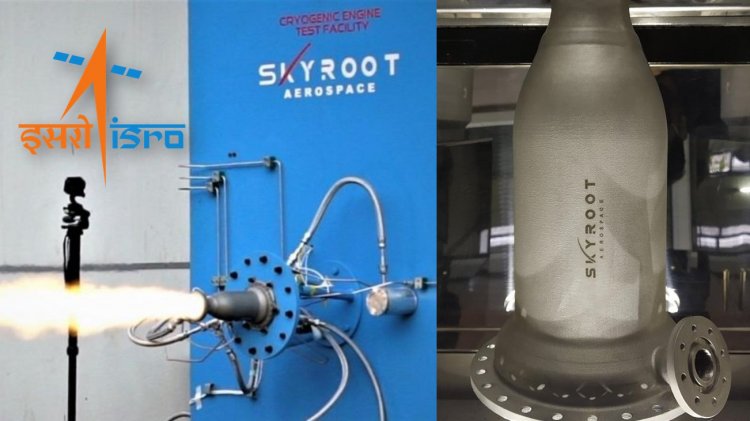Skyroot Aerospace has kick-started India’s private sector space race
India has been constantly heading towards its successful growth in the field of aviation. The aviation industry is unstoppable when it comes to presenting some marvellous innovations to Indians. In a recent development, a space technology startup has now marked the beginning of India’s private sector space race. Skyroot Aerospace’s cryogenic rocket engine: In what […] The post Skyroot Aerospace has kick-started India’s private sector space race appeared first on TFIPOST.

India has been constantly heading towards its successful growth in the field of aviation. The aviation industry is unstoppable when it comes to presenting some marvellous innovations to Indians. In a recent development, a space technology startup has now marked the beginning of India’s private sector space race.
Skyroot Aerospace’s cryogenic rocket engine:
In what can be seen as a pleasant development, Skyroot Aerospace, a space technology startup based in Hyderabad, has launched a whole new space revolution. The startup test-fired India’s first privately developed 3D printed cryogenic rocket engine that eventually will be used for the upper stages of its forthcoming Vikram-2 orbital launch vehicle.
Reportedly, the rocket engine developed using 3D printing technology has been named after Indian rocket scientist Satish Dhawan. It has also been fuelled by liquefied natural gas and liquid oxygen—a high-performance, low-cost, and clean rocket fuel.
Pawan Kumar Chandana, cofounder and chief executive at Skyroot Aerospace, stated, “This is a completely ‘Made-in-India’ cryogenic engine developed using 3D printing with a superalloy, reducing manufacturing time by more than 95%. This test makes us one of the very few companies in the world to have successfully demonstrated this technology.”
Skyroot Aerospace’s MoU with ISRO:
Earlier in September, the Indian Space Research Organisation (ISRO) had entered into a framework memorandum of understanding (MoU) with Skyroot Aerospace, allowing the private player access to ISRO’s facilities and expertise towards the development and testing of subsystems and systems of space launch vehicles.
According to ISRO, the Framework MoU will enable Skyroot Aerospace to undertake multiple tests and access facilities at various ISRO centres and also enable it to avail technical expertise of ISRO for testing and qualifying their space launch vehicle systems and subsystems. With the MOU, Skyroot has become the first private company to formally enter into an agreement with ISRO.
Earlier as reported by TFI, Skyroot had announced a successful test firing of its solid propulsion rocket stage named Kalam-5 in December last year. The private spacetech company was founded in 2018 by former ISRO scientists Pawan Kumar Chandana and Naga Bharath Daka.
Now, with the launch of India’s first cryogenic rocket engine, it is evident that India is on its way to greater private involvement in the space sector. The startups are keen on trying something new which eventually will add up to enhance India’s position in the aviation sector all over the world.







